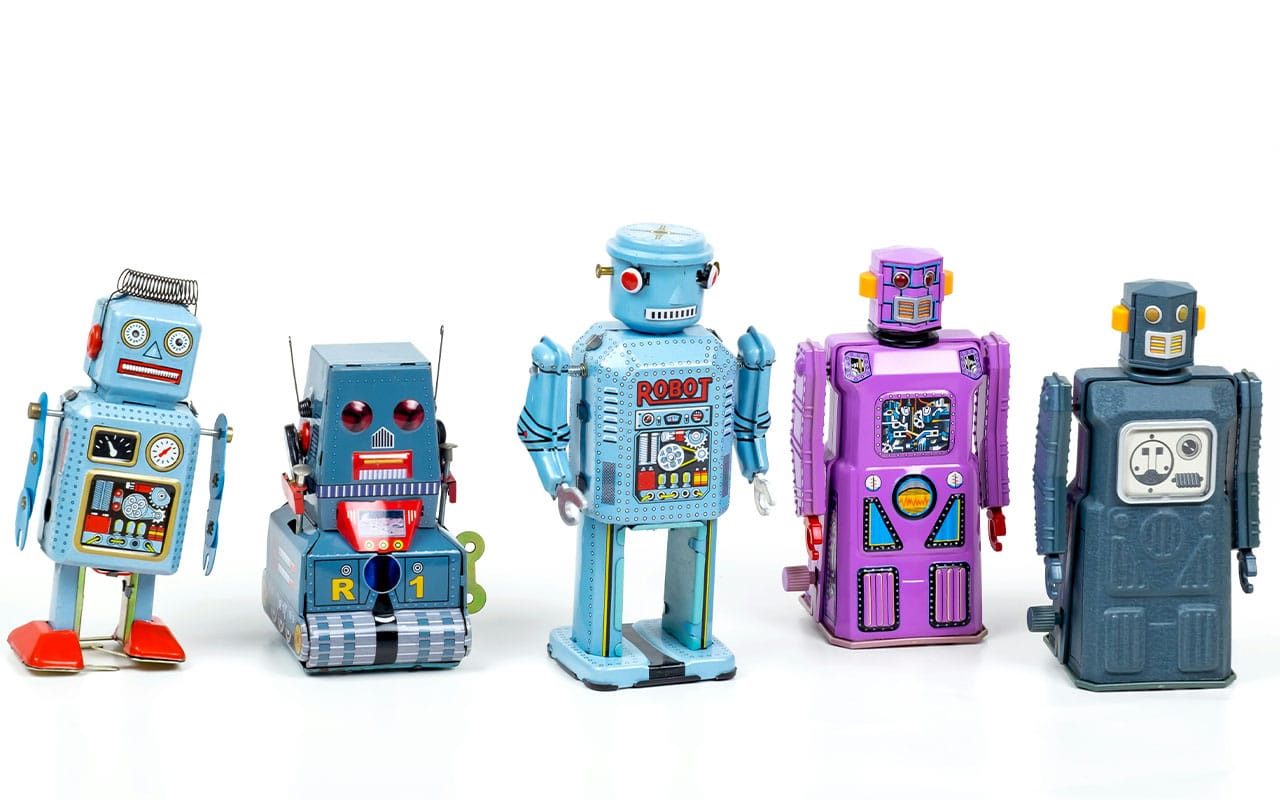Your basket is currently empty!
You may have noticed the new Artifical Intelligence band wagon the big tech companies are encouraging everyone to get on board. I say encouraging, but really, if you’re using some of the major software brands, you don’t have a choice anymore – you’re already in it up to your eyeballs.
But some of the features don’t sound much like AI, they sound more like algorithms.
Artificial Intelligence
So, what is artificial intelligence?
Artificial Intelligence (AI) is a technology that enables machines and computers to perform tasks that typically require human intelligence.
geeks for geeks
Not that I have been exposed to many Artifical Intelligence models, but the ones I know about were trained on stolen copyrighted material.
So while you can generate an image that possibly didn’t exist before, it is created through mixing and matching components that exist in the database. To use John Oliver’s example, a man (hulk) made of cabbage.
Which sounds a lot more like an algorithm than it does artifical intelligence.
Way back when, I took a computer science class, and I remember creating a program that spat out small stories from a few inputs. It was hilarious. But the cabbage hulk sounds the same except it’s generating from inputs included in the program.
Geeks for Geeks has a handy explanation for how artifical intelligence mimics human intelligence.
First data is collected and analysed, and then the model is trained on the data – the more data, the more accurate.
Once it’s trained, it uses algorithms to identify data and analyse patterns. Feedback, such as rewards and penalties improve performance.
There are two kinds of Aritifical Intelligence;
- narrow (or specific such as checking medical scans for anomalies)
- general (can do any human task).
There’s also a theoretical superintelligent model that can surpass humans, à la The Terminator’s Skynet.
The Geek’s suggested uses for AI include healthcare, retail, customer service, manufacturing and finance in situations where it can use the data and analysis programming.
I think I can concur. I remember public service and temporary placement exams where you had to cross check to find the “incorrect” items and they were awful!
They do note issues including privacy and security, bias and fairness, lack of transparency, job losses, and ethical concerns.
And the news is full of companies prematurely sacking staff for the supposed benefits of replacing them with AI only to discover the benefits of employing people extend further than the AI replacements.
Gediminas Lipnickas calls this the “doorman fallacy”, in which the role of a hotel doorman is more complex than it seems. For one thing, the existance of a doorman adds value to the hotel reputation, but aside from the doors, they welcome guests, call taxis, offer directions, act as a first line of defence, discouage unwelcome activities and so much more.
One thing AI is still not good at, is understanding people’s accents. Or understanding context. Or thinking longer term.
I’m sure it’s coming though.
Algorithms
Similarly, let’s check the definition of algorithms.
A set of finite rules or instructions to be followed in calculations or other problem-solving operations
geeks for geeks
In practise, algorithms are used to solve probems, commonly in computer science, mathematics, operations (such as logistics or resource allocation), data science (marketing, finance, healthcare), and of course they’re the foundation of artificial intelligence.
Geeks for Geeks suggest an algorithm is like a recipe – you read the instructions and follow them step by step until you get to the end.
Which sounds a lot like the cabbage hulk.
The artificial intelligence arms race
(SATIRE FOLLOWS)
Apparently, artifical intelligence is going to change the world forever.
We have to get on board before we’re left behind. Those who know how to use AI are going to get all the good jobs and teenagers are already making stacks of dosh with AI and those of us who aren’t using it are being left behind.
It is so important, that no creator in the world is safe from HUGE tech companies hoovering up vast amounts of copyrighted material because (insert country of choice) need to get ahead of (insert another country of choice).
Which is partly why I’m battling with the fear of being left behind…
Artificial intelligence and me
I checked out a bunch of “best AI” posts that suggested ChatGPT is the most useful general AI.
And once I got over my distaste for using an AI trained on pirated material…
(Because no one out there is making a big noise about how they’ve legitimately aquired and used copyrighted material no matter the type of AI.)
I asked ChatGPT what it could do for me as an author, and it helpfully gave me seventeen “tasks” it would be capable of doing, and this alone explains the tsunami of AI generated marketing material.
But, being a fulltime creative, I can’t delegate any of the seventeen tasks to it because they rely on creativity.
Yes, I know other authors can and do use AI for all sorts of things.
I don’t even use grammar checkers because I believe they change “your” style of writing.
My writing voice is unique to me, and I don’t want it tainted by AI language, let alone using it to write for me. I’ve mentioned it before – the journey is more important than the destination.
Anyway, then I told it I was a small business, and it gave me another nineteen suggestions, which were tasks I couldn’t let it do, or needed me to invest in additional infrastructure. It boasted it could save me nine hours on tasks that take me five.
🙄
I.
can’t.
even.
Particularly when OpenAI is going to train on my input. As does Anthropic, Meta, Google, and Adobe.
But when it comes to the “grunt work” that I’d like to hand off, it can’t do any of it because it isn’t human and my suppliers use honeypots to prevent scam orders.
Given how much energy I’m putting into scam orders at the moment I can’t complain about that.
And I’m annoyed I couldn’t even make AI write me code to create a successful honeypot for my wordpress website…
So that’s something else I’m putting in the pend file for a couple of years. Maybe there’ll be something better, using licensed copyrighted materials.



